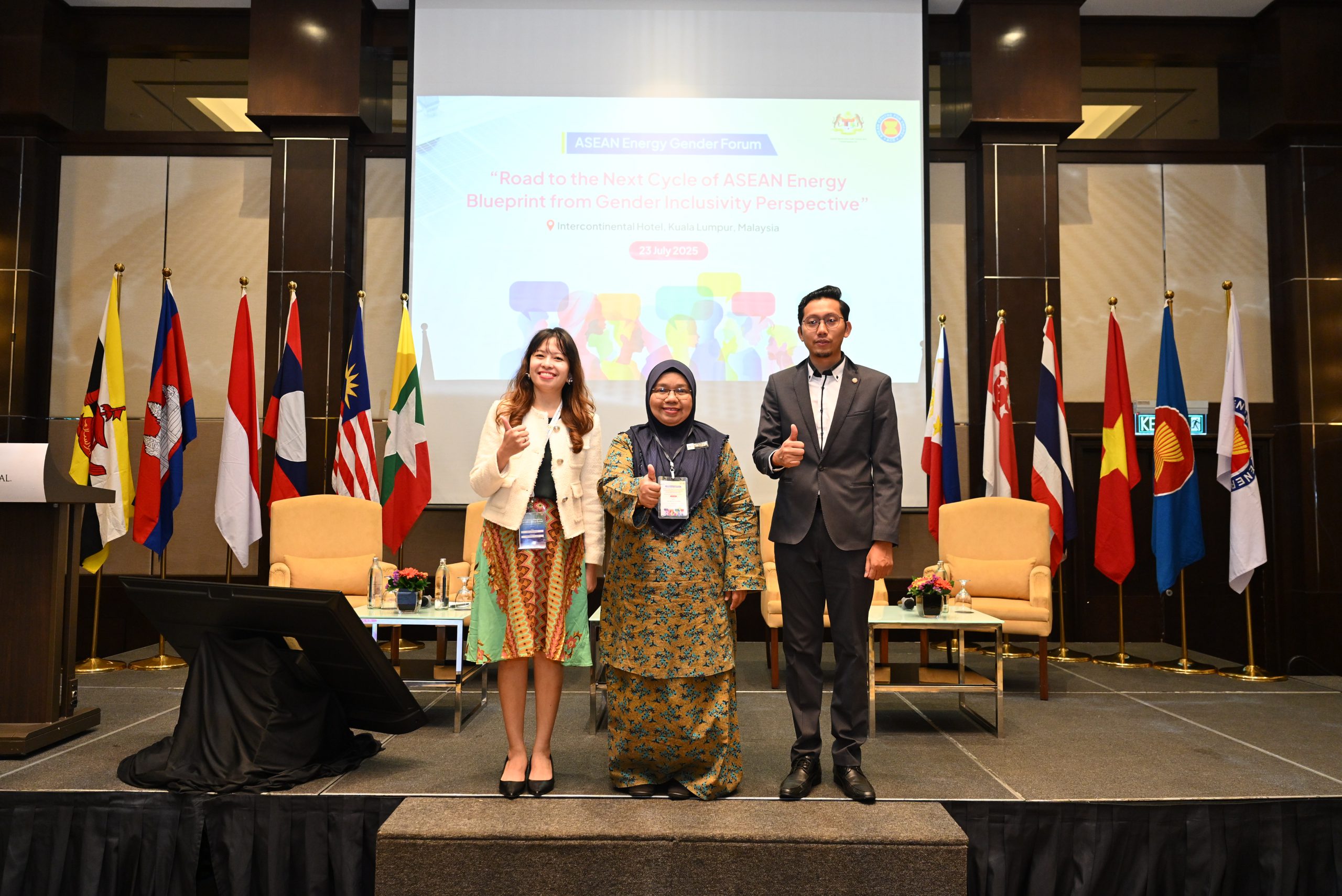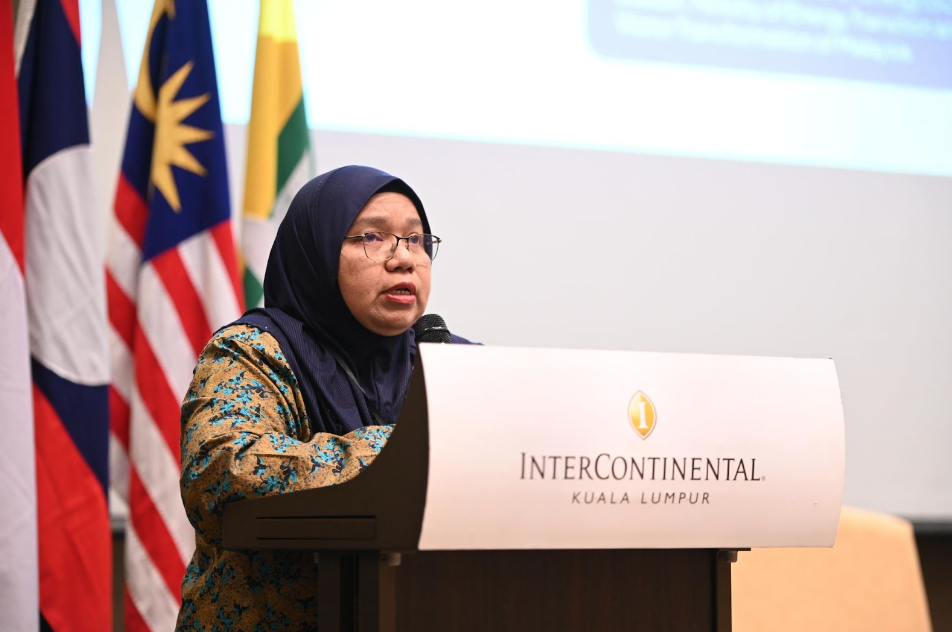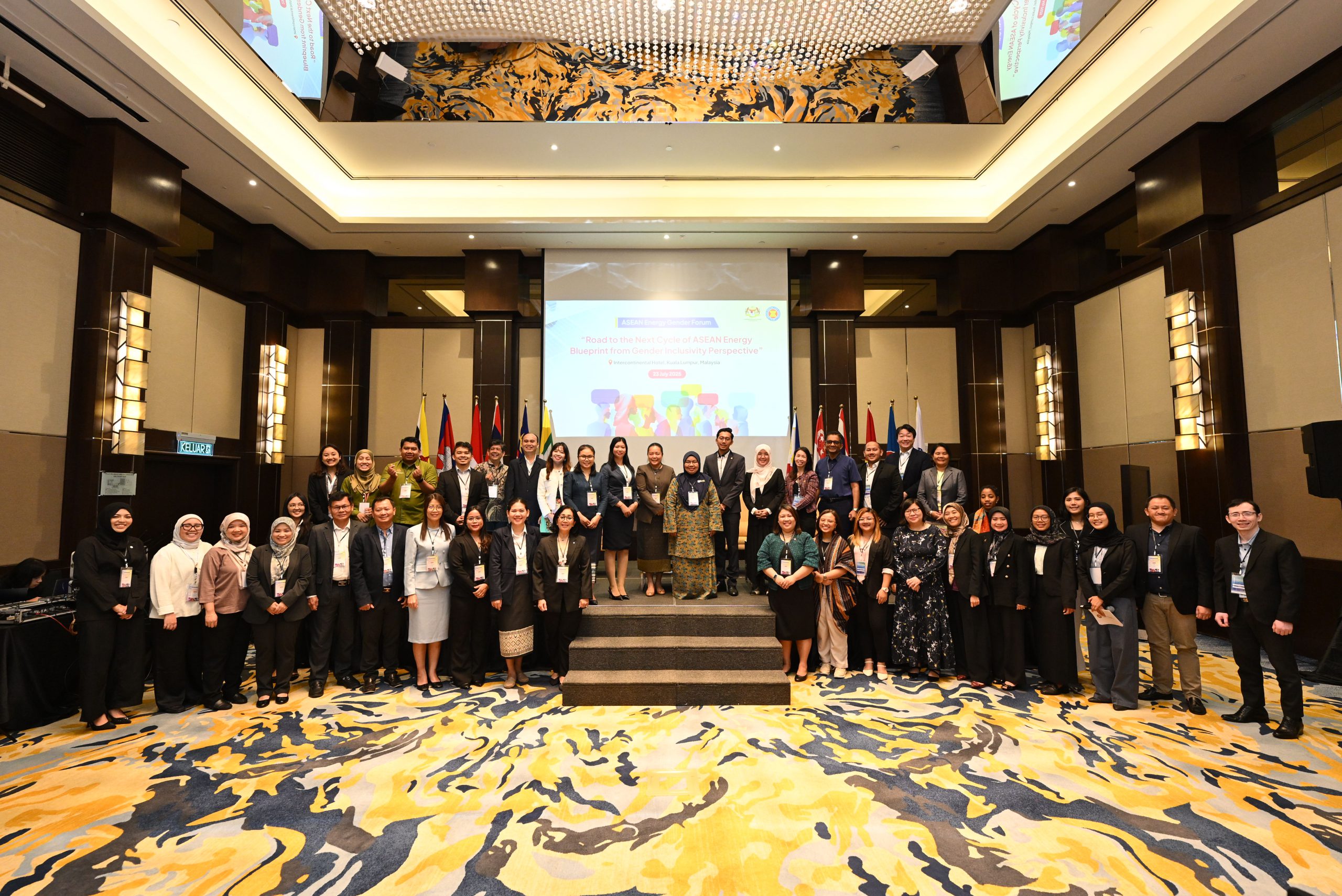Jakarta, 23 July 2025

Photo 1. (Left to right) Aldilla Rakhiemah, Project Manager of ASEAN Climate Change and Energy Project (ACCEPT) Phase II, Puan Mareena Mahpudz, Alternate Senior Official on Energy Leader Malaysia and Deputy Secretary-General of Ministry of Energy Transition and Water Transformation (PETRA), and Dr Zulfikar Yurnaidi, Manager of Energy Modelling and Policy Planning, ASEAN Centre for Energy (ACE).
Kuala Lumpur, 23 July 2024 – As Malaysia takes on the 2025 ASEAN Chairmanship under the theme of Inclusivity and Sustainability, the nation is steadfast in its commitment to gender equity. However, this dedication exists against a stark backdrop: women make up just 20% of Malaysia’s energy sector workforce, despite accounting for over 53% of STEM graduates in the country. This disparity mirrors a similar concern across the region, where women represent a mere 8% of the energy workforce in ASEAN. This underrepresentation not only limits perspectives in decision-making but also hinders innovation and progress in the energy transition.
The ASEAN Energy Gender Forum, hosted in Kuala Lumpur by the Ministry of Energy Transition and Water Transformation (PETRA) Malaysia, has ignited a regional call to action to close this gap. The forum, “Road to the Next ASEAN Energy Blueprint in Gender Perspective”, spearheaded by the ASEAN Centre for Energy (ACE, or the Centre) with the support of the World Bank, marked the first time gender, energy, and climate were discussed together at the regional level, positioning Malaysia as a leader with a major opportunity to walk the talk on gender inclusivity.
The forum laid the groundwork for the ASEAN Plan of Action for Energy Cooperation (APAEC) 2026-2030 to be gender-responsive. Research indicates that companies with gender-diverse boards often deliver stronger financial performance, greater innovation, and stronger environmental policies. Furthermore, countries with more female parliamentarians are more likely to adopt stringent climate policies and reduce CO2 emissions.

Photo 2. Puan Mareena Mahpudz, Alternate Senior Official on Energy (SOE) Leader of Malaysia and Deputy Secretary-General at the Ministry of Energy Transition and Water Transformation (PETRA) Malaysia, delivering opening remarks during the event.
Building on this evidence, the forum emphasised that excluding women from leadership and decision-making roles represents a missed economic opportunity. It is not just a “nice-to-have,” but a central pillar of the energy transition. This concept of a just energy transition is actively championed by the ASEAN Centre for Energy (ACE), which involves women as active agents of change in the region.
“This is crucial for developing policies that are both effective and socially equitable, leading to more robust environmental outcomes,” said Puan Mareena Mahpudz, Alternate Senior Official on Energy (SOE) Leader of Malaysia and Deputy Secretary-General at the Ministry of Energy Transition and Water Transformation (PETRA) Malaysia. “Energy transition must leave no one behind. Every woman, every girl, deserves equal access to opportunity, leadership and benefit in the region’s low carbon future,” she said.

Photo 3. Group photo of the ASEAN Energy Gender Forum participants.
Attendees comprised over 50 policymakers including participation from the Ministry of Energy, Ministry of Women, Ministry of Labor, and Ministry of Environment, NGOs, and civil society leaders. National strategies, key challenges, and concrete recommendations to bridge the gender gap were explored, including:
Dato’ Ir. Ts. Razib Dawood, Executive Director of the ASEAN Centre for Energy, also echoed the statement, saying, “Women are not just beneficiaries of the energy transition, they are key drivers for it. Through this forum, we seek to identify gender-responsive pathways that will help ensure our regional energy blueprint, the APAEC, fully embraces the principles of just and inclusivity. ACE, as the driver of ASEAN’s energy transition, remains committed to driving these transformative efforts in collaboration with all ASEAN Member States and partners.”
Moving forward, the Centre will continue to work closely with ASEAN Member States to promote gender-inclusive energy policies, ensuring that women’s participation in the energy transition is enhanced at all levels.
**
About ASEAN Centre for Energy (ACE)
Established on 1 January 1999, the ASEAN Centre for Energy (ACE) is an intergovernmental organisation within the Association of Southeast Asian Nations’ (ASEAN) structure that represents the 10 ASEAN Member States’ (AMS) interests in the energy sector. ACE supports the implementation of the ASEAN Plan of Action for Energy Cooperation (APAEC), a blueprint for ASEAN energy sector. The Centre is guided by a Governing Council composed of Senior Officials on Energy from each AMS and a representative from the ASEAN Secretariat as an ex-officio member.
The three key roles of ACE:
Keeping the region’s improvement, sustainable and harmless to the ecosystem is a fundamental concern of the ASEAN energy sector. Hosted by the Ministry of Energy and Mineral Resources of Indonesia, ACE’s office is located in Jakarta, Indonesia..
For more information on ACE, check our website: aseanenergy.org.
For further information, please contact: